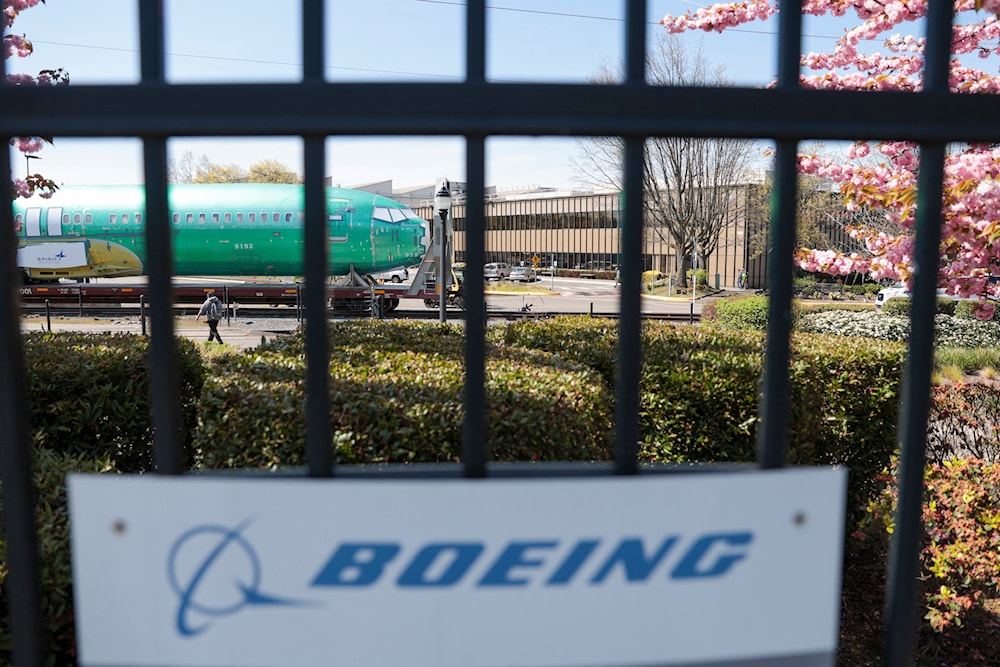China cites US tariffs in decision to halt new Boeing deliveries
China blames US tariffs for stopping Boeing aircraft deliveries, as rising trade tensions disrupt business ties and impact the global aviation market.
-

An aircraft fuselage is pictured on a rail car at Boeing's Renton factory in Renton, Washington, on April 15, 2025. (AFP)
China on Tuesday attributed its decision to halt the acceptance of new aircraft from Boeing to US tariffs, stating the measures have "disrupted the international air transport market."
"The United States' wielding of tariffs has severely impacted the stability of the global industrial chain and supply chain," China’s Ministry of Commerce said in a statement.
The Ministry’s spokesperson added that both Chinese airlines and US-based Boeing have "suffered greatly" from the ongoing trade tensions.
The US has recently imposed tariffs of up to 145% on numerous Chinese imports, prompting Beijing to respond with duties of up to 125% on American goods.
Boeing CEO confirms delivery suspension
Boeing CEO Kelly Ortberg confirmed last week that Chinese carriers had suspended the receipt of new aircraft due to the escalating trade dispute.
In a televised interview with CNBC, Ortberg said that Chinese customers had "stopped taking delivery of aircraft due to the tariff environment" and warned that if the suspension persists, Boeing may begin offering the planes to other airlines.
Ortberg noted that Boeing had planned to deliver approximately 50 aircraft to China in 2025 but emphasized that the company would not "wait too long" before redirecting the planes to other buyers.
Trump criticizes China over aircraft deal collapse
US President Donald Trump also weighed in, criticizing Beijing for abandoning the agreement and suggesting Boeing should "default China for not taking the beautifully finished planes."
China’s Ministry of Commerce responded on Tuesday, stating that "many companies have been unable to carry out normal trade and investment activities" as a result of the Trump administration’s tariff policies.
The ministry reiterated China’s willingness to support continued business cooperation between companies from both countries and expressed hope that Washington would "listen to the voices of enterprises" and foster a stable and predictable environment for trade and investment.
Read more: China grants US tariff exemptions to limit trade war impact

 2 Min Read
2 Min Read








